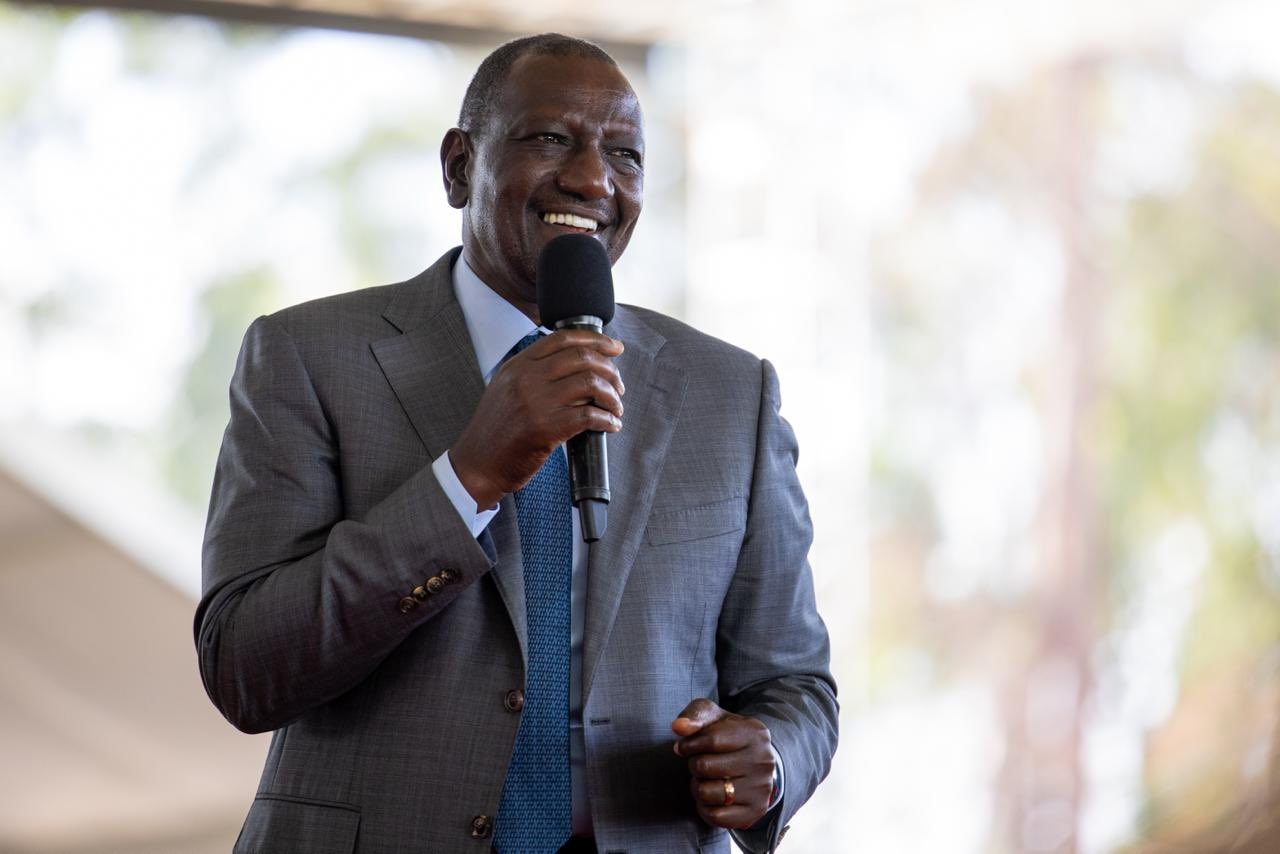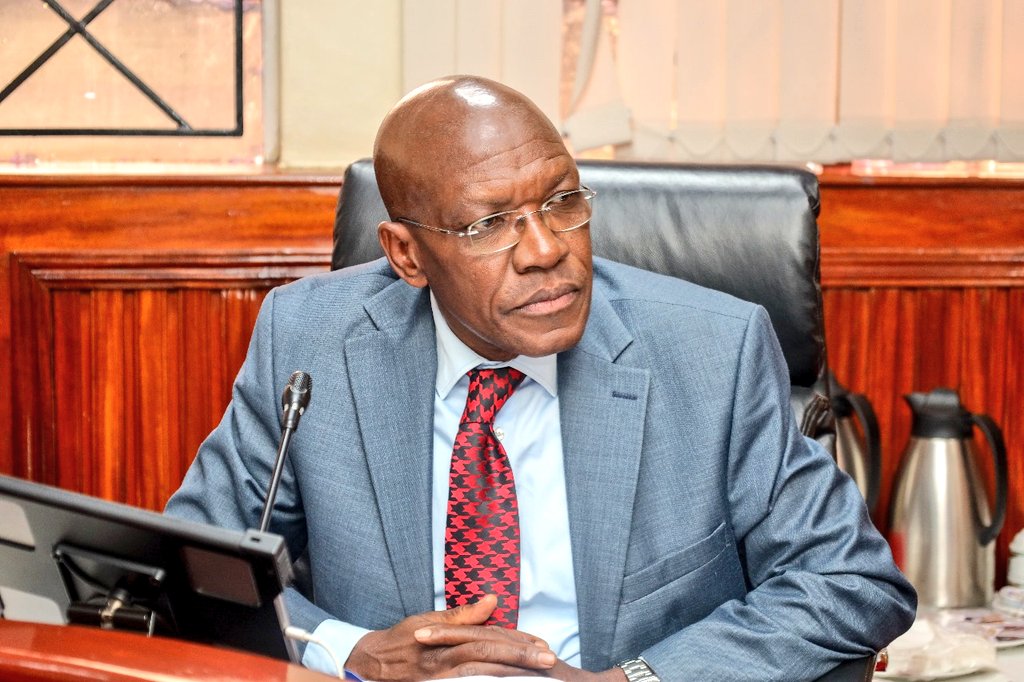730 Kenyans deported in last three years - Mudavadi

Prime Cabinet Secretary Musalia Mudavadi on Wednesday revealed that 2023 recorded the highest number at 378.
At least 730 Kenyans have been deported back to the country in the last three years.
Prime Cabinet Secretary Musalia Mudavadi on Wednesday revealed that 2023 recorded the highest number at 378.
More To Read
- Malava by-election: Two UDA primary aspirants awarded diplomatic posts
- Senators summon Mudavadi over harassment, detention and deaths of Kenyans abroad
- Government blames failed drug tests for delays in Kazi Majuu placements
- Over 3,400 Kenyans in distress reported in Middle East since 2023 - Mudavadi
- COTU urges Kenyan workers abroad to register with embassies for protection, support
- Musalia Mudavadi warns Kenyan youth against crossing border for protests
"The state Department of Immigration and Citizen Services has informed that 730 Kenyans have been deported into the country since 2022 based on different grounds," he stated.
The data also revealed that 186 Kenyans were deported in 2022 while 166 have been returned to the country so far this year.
Mudavadi made these revelations while appearing before the Senate on Wednesday while responding to queries regarding the welfare of Kenyan deportees and allegations of human rights violations against Kenyans abroad.
Mudavadi acknowledged the absence of specific safeguards for dependents and property left behind by deportees, citing that such matters are primarily governed by the laws of the host countries.
"The Ministry so far has no safeguards in place with regards to the dependents and property left behind by the deportees since such property is governed by the laws of the host country," he said.
Regarding the reintegration of deportees, the Foreign CS pointed out that the Ministry relies on diplomatic channels and cooperation with diaspora associations.
However, he pointed out that there are other channels available for pursuit such as a follow-up with the authorities through diplomatic channels, if such a matter is brought to the Ministry's attention.
The CS also highlighted challenges related to notification protocols in cases of arrests abroad.
"Unfortunately, for some Kenyans and in the advent of information and data protection, those who are arrested or in conflict with the law sometimes request the prison authorities not to notify the Embassy or any family members," Mudavadi added.
Reintegration process
The CS was responding to the question of what measures the government has put in place to safeguard dependents and property left behind by deportees, and the initiatives taken by the Government to facilitate the reintegration process of the deportees.
Foreign CS Musalia Mudavadi also outlined the procedures they followed when handling complaints and reports of human rights violations against Kenyans in the diaspora before.
He acknowledged the sovereignty of other nations and their right to manage their internal affairs, including the admission and stay of foreign nationals.
"Kenya recognizes the sovereign right of any nation over their territory and in managing their internal affairs, including admission and stay of persons in their territories," Mudavadi stated.
He stressed that Kenyans abroad must obey the laws of the host countries.
However, he also highlighted that international human rights laws apply universally. These include the Universal Declaration of Human Rights (UDHR), the International Covenant on Civil and Political Rights, and the International Covenant on Economic, Social and Cultural Rights, among others.
The Prime CS also noted that any actions taken against Kenyans should be within the confines of these international laws.
When the Ministry has reason to believe that a Kenyan's rights have been violated, they take several steps to address the situation. The first step is usually a consular visit.
"A Consular Officer undertakes a visit to the affected person and provides a report of the circumstances surrounding the matter," Mudavadi explained. This visit helps the Ministry understand the situation firsthand and gather necessary information.
If more information is needed, the CS said that the Ministry may send a diplomatic note to the host country's mission, requesting details about the situation. This is a formal way to seek clarity and address concerns.
"The Ministry may also consider dispatching a diplomatic note to the concerned State's Mission requesting to be furnished with information regarding the circumstances surrounding such violations," Mudavadi elaborated.
This step ensures that the Ministry is informed about the host country's perspective and actions.
In cases where there is strong evidence of human rights violations and no response from the host country, the Ministry can escalate the matter by issuing a demarche.
"Where the evidence is overwhelming and no response is received from the host State, the Ministry may issue a demarche, where the highest-ranking Diplomatic Representative (Ambassador/High Commissioner/Charge d'Affaires) is summoned to the Ministry of Foreign and Diaspora Affairs and issued with a Protest Note requesting action," Mudavadi clarified.
This involves summoning the highest-ranking diplomatic representative of the host country to the Ministry and issuing a formal protest note, demanding action.
Additionally, similar actions can be taken through Kenya's missions abroad.
The Kenyan Ambassador or High Commissioner in the concerned country presents the government's displeasure directly.
"Similar action is undertaken through the Kenya Mission in the capital of the Country in Question, where our Ambassador/High Commissioner/Charge d'Affaires presents the displeasure of the Kenyan Government on the same," Mudavadi added.
This ensures that the host country is aware of Kenya's stance and seeks to resolve the issue diplomatically.
Top Stories Today













































